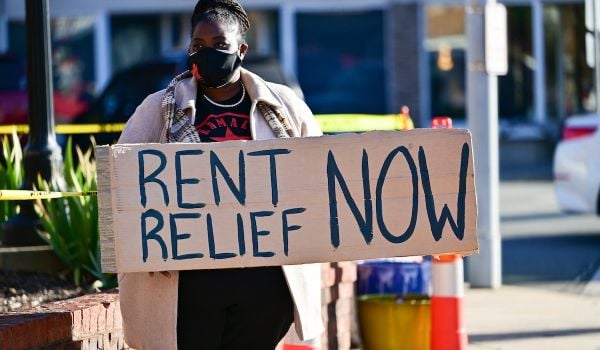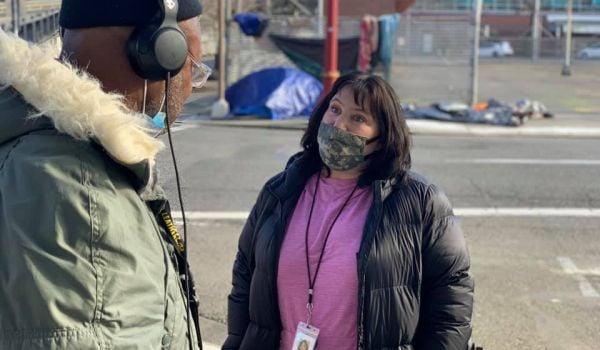Last year was a frustrating one for residents and advocates of mobile homeless encampments, commonly known as tent cities. The city of San Jose, Calif., in particular, came under fire for its draconian destruction of an infamous camp called The Jungle.
Tent cities are a complicated issue for those working to end homelessness and the general public. They provide portable shelter for those in need, but can also encroach on public spaces, offer potentially inadequate support systems and services, and are not permanent housing solutions.
Now, Seattle Mayor Ed Murray has appealed to his City Council to authorize and regulate three new organized homeless encampments and opened the door for the encampments to be managed by nonprofits, possibly on city property (excluding public parks). Seattle already has four tent cities on properties owned by religious institutions, a practice protected by state law.
The Mayor’s action stems from advice from his Emergency Task Force on Unsheltered Homeless that decisive measures be taken to respond to a spike in homelessness from 2013 to 2014. Like most cities nationwide, Seattle does an annual point-in-time count of its homeless population in late January. Last year’s count found 3,123 people living on the streets of the city and King County — up 15 percent from the previous year.
“I think it’s extremely important for anyone looking at this issue to understand that tent cities — while they are absolutely a part of a reasonable and real emergency response — are not the full story,” says Alison Eisinger, the executive director of Seattle/King County Coalition on Homelessness, the group that organizes the area’s One Night Count. She also served on the Mayor’s emergency task force and says that his proposed encampments account for part, but not all, of their recommendations.
The task force also recommended a substantial increase in daytime and overnight indoor shelter, and that city property be considered for these services. Murray has been less responsive to those recommendations. At the announcement about the encampments, he stated that the city had added 50 more shelter beds, but Eisinger says that they are winter-only beds and do not make a dent in the region’s great need for shelter. The new tent cities would at least offer a small first step in providing this population some respite.
“They are potentially safer than being out on your own. They have some additional infrastructure, including sanitation [portable toilets], the ability to cook, access to their belongings 24 hours a day,” says Eisinger. “Those are some of the very important, real ways that [tent cities] are not just theoretically useful. We have a very long track record of seeing them in our community.”
This Friday morning, volunteers will be conducting this year’s One Night Count. Last year, 9,294 people who were counted were either in transitional housing, shelters or on the street. Eisinger points out that despite the emphasis people put on homeless encampments, “the vast, overwhelming majority … we count between two and five in the morning will not be in those tent cities.”
It’s unclear if Murray’s proposal will actually come to fruition in the form he’s proposed. He’s got opposition within the City Council as well as some policy details to refine for advocacy groups.
“The track record for this community is self-managed tent cities,” says Eisinger. “It’s not yet clear, to be honest, in the mayor’s proposal, whether he is hoping for self-managed or for traditional service providers to step in and operate a tent city. If that is the case, I’m not sure there are many or any that would want to take that on, and it’s not clear whether there are going to be any public funds to be made available.”
There is also a concern that timed with the announcement of the tent cities, there’s been a crackdown on some dispersed campsites. Seattle/King County Coalition on Homelessness volunteers have found evidence that state, city or county officials have made sweeps this past week.
“We are supportive that this Mayor has both the guts and the understanding of reality to understand that we need to do more,” says Eisinger. “But at the same time, the Mayor needs to stop sweeping the people who are homeless who are not in these authorized tent cities, unless there is somewhere else for them to go. This is the challenge.”
“Nobody, including the people who live in organized tent cities, wants that to be the answer,” she continues. “But it is an acknowledgement of what is real and can work for some people. They are not for everyone. The scale of the crisis is such that there isn’t really one answer.”
The Equity Factor is made possible with the support of the Surdna Foundation.

Alexis Stephens was Next City’s 2014-2015 equitable cities fellow. She’s written about housing, pop culture, global music subcultures, and more for publications like Shelterforce, Rolling Stone, SPIN, and MTV Iggy. She has a B.A. in urban studies from Barnard College and an M.S. in historic preservation from the University of Pennsylvania.

















